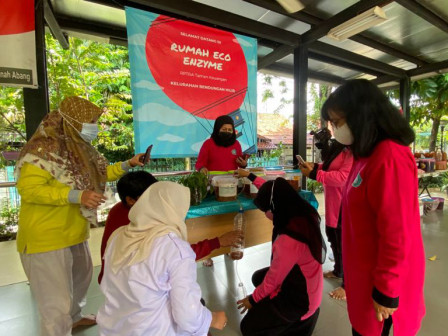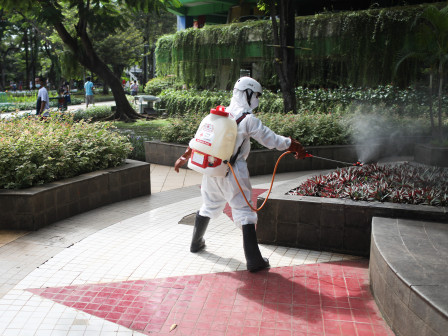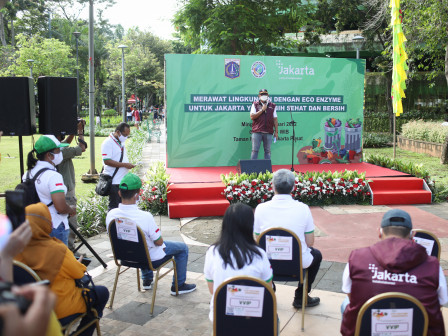Tanah Abang TP PKK Develops Eco-Enzyme House Program
Reported by Anita Karyati | Translated by Maria Inggita
The Tanah Abang TP PKK, Central Jakarta is developing an Eco-Enzyme House program as an effort to reduce organic waste volume by processing vegetable waste and fruit peels.
We hope the same program can also be implemented in every RT and RW
Tanah Abang Sub-district TP PKK Chairperson, Yantie Mulyanti conveyed, her side has been collaborating with the Eco-Enzyme Nusantara (EEN) community since October 2021 to provide training on how to make eco-enzymes for urban village TP PKK cadres, RPTRA administrators, and residents.
The program has been developed in 11 RPTRAs in Tanah Abang Sub-district and 2 urban village offices. Then on Thursday (1/27), they already enjoyed the results.
Knowing Various Benefits of Eco-enzyme"Together with the EEN community, we continue to socialize residents about the organic waste management program and benefits of Eco-Enzymes. To optimize it, we utilize 11 RPTRAs and 2 urban village offices as Eco-Enzyme houses," she explained, Saturday (1/29).
In each Eco-Enzyme house, her side provided an education corner, Eco-Enzyme results, and samples, which were distributed to residents.
"We hope the same program can also be implemented in every RT and RW. Thus, its residents can start sorting their waste," he stated.
Bendungan Hilir (Benhil) Urban Village Head, Rida Mufrida said, around 5 RPTRAs in her region have implemented the program.
She hoped that each RPTRA could produce at least 10 liters of Eco-Enzymes which can be used as cleaning products, hand sanitizer, fertilizer, disinfectant, and wound medicine.
"From 5 RPTRAs, many people have also been trained to make Eco-Enzymes," she added.
According to her, the results of Eco-Enzymes are still being produced and distributed to residents.
After becoming a routine activity, Eco-Enzyme products would be commercialized to increase RPTRA funds for operational costs.





